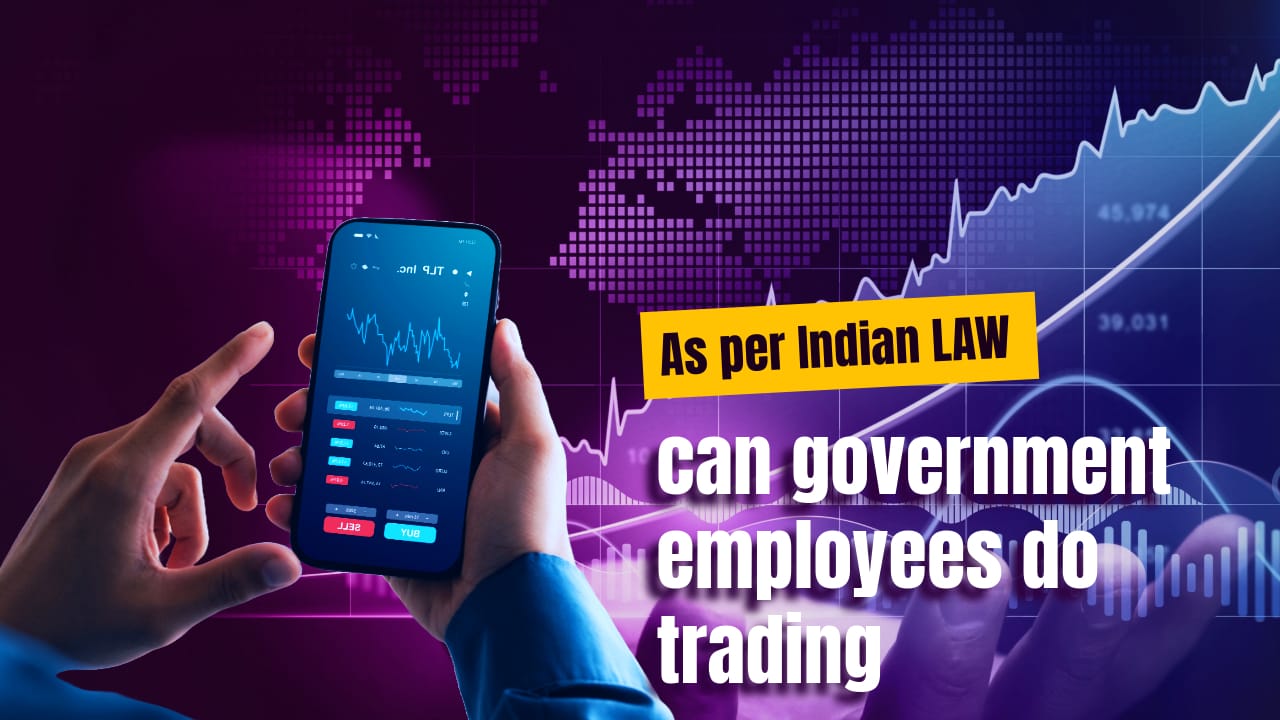The demand for stock market investing is rising in India. People of all ages can invest in the stock market to increase their wealth because it is an inclusive environment. But the primary query that comes up in relation to government workers is can government employees do trading ?
Indeed, an Indian government employee is permitted to purchase stocks, but they are not permitted to engage in trading. They must also be mindful of other regulations. Read on for more in-depth information about government employee’s trading and investment activities.
can government employees do trading ?
The Central Civil Services’ Section 16 prohibits government employees from engaging in stock market trading. All government workers are covered by this, regardless of whether they work for the federal government, the union territories, or any state government. No government employee is allowed to speculate on stocks, commodities, or bonds in accordance with the rule that has been put in place.
Trading is the regular buying and selling of assets linked to the market, such as stocks, bonds, and so forth.According to this rule, trading is referred to as speculation, which suggests that a government employee is willing to engage in a high-risk activity in the hopes of making money. However, government workers are prohibited from engaging in share market trading in accordance with Section 16.
Can a Government Employee Open a Demat Account?
As previously stated, there are restrictions on a government employee’s ability to invest in the stock market, regardless of whether they work for the federal government or the state government. Currently, opening a demat account is required in order to invest in the stock market. As a result, a government employee can invest in the stock market by opening a demat account.
can government employees do trading as per Central Civil Services (Conduct) Rules 1964
35(1) No government employee may speculate in stocks, shares, or other investments; however, this subrule does not apply to sporadic investments made through stockbrokers or other individuals who are properly licensed, authorized, or who have received a certificate of registration under the applicable law.
Explanation: In the context of this subrule, regular purchases, sales, or both of shares, securities, or other investments will be considered speculation.
40(2) (i) No government employee may make an investment that would embarrass him or affect his ability to carry out his official responsibilities, nor may he allow a member of his family or someone acting on his behalf to make such an investment. For this reason, any acquisition of shares from the quotas set aside for company directors or their friends and associates will be considered an investment that is likely to cause the government employee embarrassment.
(ii) No government employee who participates in the process of determining the price of an IPO or follow-up IPO of shares of a central public sector enterprise may apply for the allocation of shares in the IPO or follow-up IPO of that central public sector enterprise, either directly or through a family member or another individual acting on his behalf.
(3) The Government’s decision regarding a transaction is final if there is any doubt as to whether it is of the type mentioned in subrule (1) or subrule (2).
(ii) A government employee must immediately notify the designated authority of the situation and act in compliance with any orders issued by that authority if they are appointed or transferred to a position that would require them to violate subrule (2) or subrule (4).
Conclusion: can government employees do trading
In can government employees do trading summary, employees of the federal or state governments are permitted to invest in the stock market but are not permitted to engage in speculation. Day trading and other frequent trades are subject to the limitations. Long-term investments, such as stocks, bonds, mutual funds, etc., are exempt, though, as long as they are made by professionals with the necessary qualifications.
You must properly comprehend the distinction between trading and investing in the stock market before you begin making investments. Additionally, make sure to review the relevant regulations, such as the SEBI (Prohibition of Fraudulent and Unfair Trading Practices) Regulations and the Central Civil Services (Conduct) Rules.

